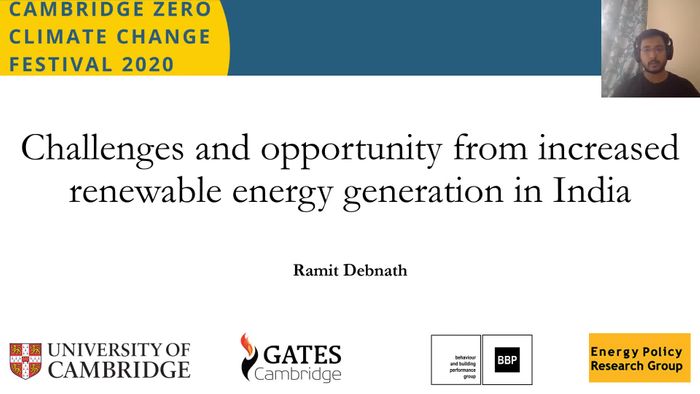Abstract
About 70% of India’s current energy mix comprises coal, and the increase in generation from renewable (RE) sources is affecting the health of the power system. We investigated this effect through the lens of asset utilisation, cost and the social disruption caused by accelerating RE into the Indian Power System. Our analysis revealed that increasing RE generation is pushing the coal plants to operate in low-loading conditions, causing heightened wear and tear of the plant. The novel analysis of social disruption due to market parity between RES and coal-based generation presented a holistic view of the political economy of Indian Power System. Transition from coal to RE may have extended socio-political ramifications. Policy implications outlined by our study for the draft Electricity (Amendment) Bill 2020 include scoping a socio-technical framework which supports just energy transition through better financial support mechanisms for flexible operation of coal plants.
Video




